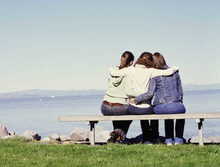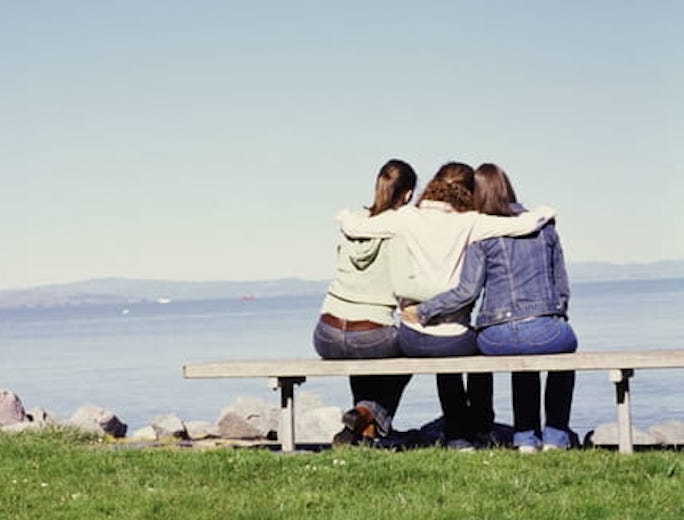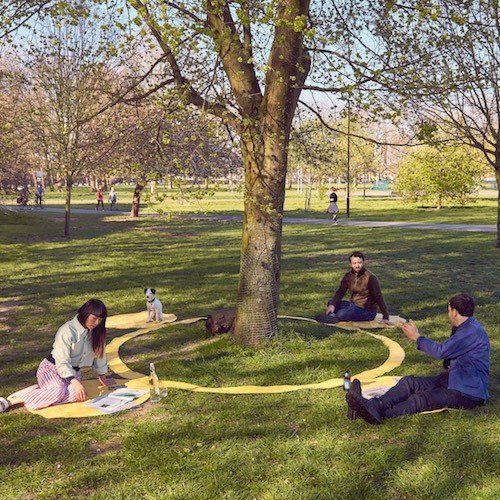Manage Depression and Anxiety In 4 Simple Ways

It’s in your realm of control to manage depression and anxiety. Here are four simple ways to get started. Begin by socializing with someone you care about.
Oddly, this piece on how to manage depression and anxiety begins with dirty air.
It’s been a lousy three day. This air in Sausalito, CA is making me anxious. Right now, several hundred fires rage in this state; many about 60 miles away from my home.
I do have a stress-reliever technique. It’s a method used by the US military. But it requires deep breathing. Breathing in all the particulate matter in the air deep into my lungs would create more stress for me than whatever the 4x4x4 technique might relieve, I wager.
Read about Jean and the 4x4x4 technique
Speaking of stress, I’ve been video recording the lifestyle factors part of the Covid Immunity course I’ve been working on over the last four months.
A small but significant part of the desired lifestyle factors taught in the course is about stress management from an immunological perspective. On this topic, a new study out of Harvard Medical School has you covered.
The Harvard study concludes that the simple way to manage depression and anxiety is to socialize.
Yes, there’s a pandemic going on, and, yes, it’s a really good idea to stay about six feet apart and wear a face mask if you’re going to remain in close proximity to someone and jawbone, particularly if indoors.
But that doesn’t mean you can’t hang with friends, or get on the phone.
The Harvard researchers evaluated more than 100,000 people in 106 changeable behaviors that are prominent, such as sleep patterns, diet, exercise, media intake, environment and socializing.
The one that helped manage depression and stress the most was socializing.
Lead author Jordon Smoller, a professor of psychiatry at Harvard Medical School said:
Far and away, the most prominent of these factors was frequency of confiding in others, but also visits with family and friends, all of which highlights the important protective effect of social connection and social cohesion.
Reach Out and Get Social
You might not feel like being a social butterfly these days, but there’s some very good reasons to reach out and grab a friend:
Socializing protects against depression even for people highly prone to depression due to either genetics or early-life traumas.
Equally interesting is that the Harvard study found two stress/depression-causing behaviors to avoid:
- TV watching, and
- Daytime napping.
Hey, I like a nap as much as anybody from time to time, but together with TV watching, regular napping, the data shows, is a proxy for sedentary behavior. Too much sitting around apparently is depressing.
Yes, you might thing that being horizontal for extended periods of time is relaxing, and that relaxation is a de-stressing state, but au contraire.
As Susan Biali Haas, M.D puts it:
Depression feeds on withdrawal and inactivity.
In her article in Psychology Today, Dr. Haas explains that when you’re depressed, you slowly withdraw into yourself. When that happens, you’re less likely to engage in the activities you used to do, stop reaching out to others, and eventually, you can lose the confidence to try what you might have previously embraced, or had the courage to face.
The result of all this is that you go couch surfing.
Inertia sets in and it becomes hard to get energized enough to do something worthwhile. This becomes a vicious circle; the withdrawal and inactivity actually feeds the anxiety and depression, making it worse.
Alas, there’s a way out of this vortex, says Dr. Haas. Here are her strategies that might be helpful to you.
Mange Depression and Stress In 4 Simple Ways
The first strategy has already been explained — socialize. The rest come from strategies to help manage depression and anxiety that Dr. Haas teaches as a wellness expert, life and health coach.
1. Socialize
Let’s face it, even the most hermetic of us like human interaction once in awhile. Don’t let the pandemic keep you isolated. Go take a walk in the forest, or some green space, with a friend. Just don’t get close to one another and talk into each other’s face, even with a face mask on.
Nature itself can be very relaxing and can boost your immune system, as I wrote in Let Nature Strengthen Your Immune System. So grab a friend and take a hike away from the vestiges of civilization.
Or simply pick up the phone and have a long-overdue chat with an old friend. You’ll feel better afterwards.
2. Set small goals
Set yourself up for small wins by practicing tiny habits. This will help you to feel more in charge of your life again and make you feel better about yourself.
Self-care is a great place to start, says Dr. Haas. Don’t let your hygiene degrade, or abandon your household chores, or that body, which needs to move.
3. Spend your energy within your resources
If you’re normally a high energy, productive person, depression can be incredibly frustrating and discouraging. So, don’t add to your anxiety by trying to quickly climb into the high gear of your former self too quickly.
Instead, just use whatever fuel is currently in your tank. If you are really depleted, you may only be able to get some basic self-care done, and that’s alright. Focus on cultivating just the wee bit of energy you need to do one thing that can improve your state of mind.
Make a point of feeling satisfied for every thing you do manage to do, no matter how small. It all counts, each positive action is a deposit toward healing and recovery.
4. Develop awareness about your choices
Remember that anxiety and depression feed on withdrawal and inactivity. If you’re experiencing either, strive to develop an awareness of your choices and where they’ve led.
Dr. Haas uses emotional eating as an example.
You can choose to eat a “real” meal, or a bag of chips, or skip eating entirely. When you come to the moment of making a decision, become aware of which choice will move you toward healing (eating real food), and which will feed the depression (eating chips for dinner or skipping meals).
Another choice is about how are you going to spend your time? Getting glued to the TV is one choice, but that inactivity and withdrawal would more than likely feed the depression; the notable exception being if you proactively decided to watch a particular show with a loved one or friend as a bonding experience.
Rather than watch TV for hours alone, as I said earlier, pick up the phone and call someone you enjoy talking to. Or invite someone over to hang out with you, taking the necessary precautions during the pandemic.
One of my favorite “pick me ups” is to read a biography of someone I admire, or expect to based on his or her accomplishments. Reading how someone faced and overcame adversity is inspiring.
Your Takeaway
Remember these four things:
- Depression and anxiety can be debilitating, so don’t exacerbate this state of mind by berating yourself.
- Look for a chance to do something that can make you feel better that involves physical action, whether that be taking care of personal hygiene, cleaning the house, cooking yourself a healthy meal, or going for a walk. You want to disrupt the anxious, depressed state of mind.
- Hang out with a friend. Whether on the phone or ambling through nature, grab someone your care about and get that needed “pick me up”.
- Don’t aim too high, but rather chose to do whatever you have enough energy to accomplish. Start with tiny habits and let them grow big.
Last Updated on August 23, 2020 by Joe Garma





